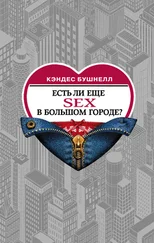"I can save him," I think, staring at the black-and-white photograph on the cover of Time magazine, sitting on the cheap, Scandinavian-wood coffee table in the living room with the nubbly green polyester couch in the house in Lawrenceville, Massachusetts, where my mother has decided to settle with the man who works in the fish business.
"I can save you, little prince," I think, although he is not little (six-two) and just on the edge of manhood, and forever away, staying at the home of rich society people in the Caribbean and planning to attend Harvard in the fall. I stare at the photograph and fantasize that he is in the hospital, felled by an accident, with bandages on his head, and he says, "I want Cecelia. I must have Cecelia," and I rush into the hospital room and he kisses my face.
I am ten years old.
What has happened to me?
I used to be so strong. And determined. And aggressive, people said. They were scared of me. It was obvious that I wanted something, but no one knew what.
I knew.
I wanted the prince.
Ever since I was ten, I worked at putting myself in the path of the oncoming train of destiny. How did I know that I should major in art history in college? (I just knew.) And that I should finagle a job at a famous Soho art gallery where I would meet rich and glamorous men and women (mostly men), who would embrace a beautiful young girl with attitude and a sense of humor and take her up and show her off on the town, so that, even without the approbation of family money or name, her picture would appear in the newspapers and magazines as having attended this or that event? And how did I know, when Tanner walked into the gallery that day, that I must do everything in my power to become his girlfriend, so that when my real object of desire walked in, which I knew he would eventually, given the laws of consequence, those being that he lived in Soho and bought art, I would already be taken by a worthy opponent and this would make me more valuable in his eyes?
You just know these things. They're instinctual. I was all instinct then. Raw, aggressive instinct, and I lived my life like an alien thing was driving me.
But now that thing is gone. It has failed me. (Where did it go? Can I get it back?) And I am FRIGHTENED nearly all the time now.
By EVERYONE—doctors, lawyers, politicians, photographers, gossip columnists, anyone who might use words I don't know or talk about events that I should know about but don't, all actors and journalists, women who go through natural childbirth, women who speak three languages (especially Italian or French), and anyone that other people say is talented or merely cool or simply English. As you can imagine, this encompasses pretty much everyone in Hubert's life, and that is why, if we have to go out, I tend to become deathly ill beforehand (in which case I can usually get out of going); or, if I cannot muster a life-threatening illness, I sit in a corner with my hands folded in my lap, my head tilted and a blank expression on my face, which seems to prevent people from attempting to converse with me.
But on this particular evening, no amount of vapors can prevent the inevitable: attending the fiftieth anniversary of the ballet.
Without my husband.
Who is actually having a CARD GAME instead.
He's sitting in the living room in a red-and-white striped shirt, suspenders still looped over his shoulders, drinking a beer with his buddies from the network whose names I still can't be bothered to remember, when I come down the stairs, wearing a white brocade dress with gray mink trim and long gray gloves. My mother is married to a fishmonger. My father is gay and lives in Paris. I am going to the ballet.
Doesn't anyone understand how TERRIBLE life is? I used to beg to go to these events. I used to connive and cadge an extra ticket, suck up to gay men who wanted to help me, buy a dress and tuck the tags in and arrogantly return it the next day, all with the specific ambition of landing myself in the position I'm in tonight.
"Hello," Hubert says nervously, putting down his beer as he stands. "I ... I wouldn't have recognized you.”
I smile mournfully. "Is D.W. here yet?" I shake my head.
He looks at his buddies. "I guess we'd know it if he were. D.W. He's Cecelia's friend. He's—”
“An escort," I say quickly.
The buddies nod uncomfortably.
"Listen," he says, approaching to take my arm, leading me a little bit out of the room, "I really appreciate this, you know?”
I stand with my head bowed. "I don't know why you're making me do this.”
"Because," he says. "We've been over this before, and ifs a good thing.”
"It's not a good thing for me.”
"Listen," he says, nodding at his buddies over his shoulder while pulling me deeper into the library, "you've always said you wanted to be an actress. Just pretend you're an actress and you're in a movie. That’s what I always do.”
I look at him pityingly.
"Hey," he says, touching my shoulder, "ifs not like you don't know how to do this. When I met you ...”
What?
He stops, seeing that he has said the wrong thing. When he met me, I had crashed the event. Looking for him. He found out six months later, over pillow talk, and thought it was funny; but then he realized the story would make me look bad, so ifs one of the many awful truths about my past that we have to keep hidden.
I am standing stiffly, my eyes wide, staring into space.
"Oh no," he says. "Oh no, Cecelia, I'm sorry, I love you." He grabs for me, but it is too late. I gather up my skirts and run out the door, run down the stairs and out onto the sidewalk, panting for a second, looking around, wondering what I should do, and then I see a cab, run to the street and hail it, and as I get in and slam the door and look back I see the photographer in the camouflage outfit, who stares at me with a sort of muted curiosity on his face and then shrugs.
"Where to?" the cab driver says.
I sit back on the seat. I touch my hair. "Lincoln Center," I say.
"Are you an actress?" he says. I say yes, and he lets me smoke.
I consciously think of nothing as my heels click briskly across the plaza at Lincoln Center. I hurry slightly because of the February drizzle and flow into the crowd that gathers at the door, laughing, stomping their feet, shaking umbrellas. I somehow manage to blend in, passing the photographers, who look at me and then turn away to take someone else's picture, and I am relieved until a short young woman, dressed in black and wearing a black headset, approaches and says, "Can I help you?”
I look around in confusion and open my mouth and then close it and look at the girl again (who is smiling at me, not unkindly), and I narrow my eyes, not believing that she doesn't know who I am.
I m ...
"Yes?" she says, and I suddenly realize that she doesn't recognize me. If s the short white hair. I look around, lower my voice. "I'm Cecelia Kelly's cousin. Rebecca Kelly. Cecelia wanted to come, but she's ... sick ... and she felt so bad about it, she insisted I go in her place. I know if s an inconvenience and all, but I've been in Paris for the past five years and—”
"Don't worry about it," she says cozily, reaching across a table and picking up a card that reads PRINCESS CECELIA LUXENSTEIN. " N O one ever objected to a beautiful woman, you know, and you're sitting at a table with Nevil Mouse, who has been bugging and bugging and bugging me to set him up with some 'eligible woman' even though he's here with that model, Nandy, and, well, I hope Cecelia feels better, you know?" She hands me the card. "She seems to be sick a lot. Which is really too bad, because"— the girl leans in conspiratorially—"she's kind of our secret hero in the office. I mean, our boss is such an asshole, but the thing about Cecelia is that you can tell she thinks it's all such a bunch of ... crap ... and after you've done this for a couple of years, I can tell you that it is.”
Читать дальше

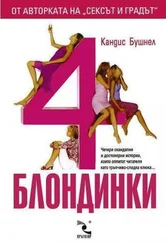
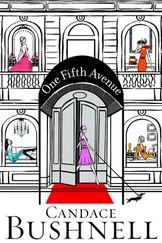
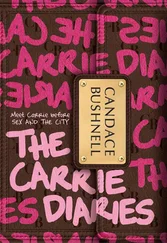
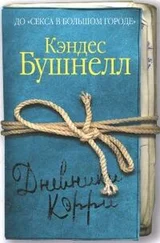
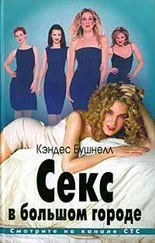
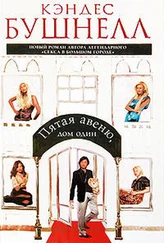




![Кэндес Бушнелл - Есть ли еще секс в большом городе? [litres]](/books/398473/kendes-bushnell-est-li-eche-seks-v-bolshom-gorode-thumb.webp)
